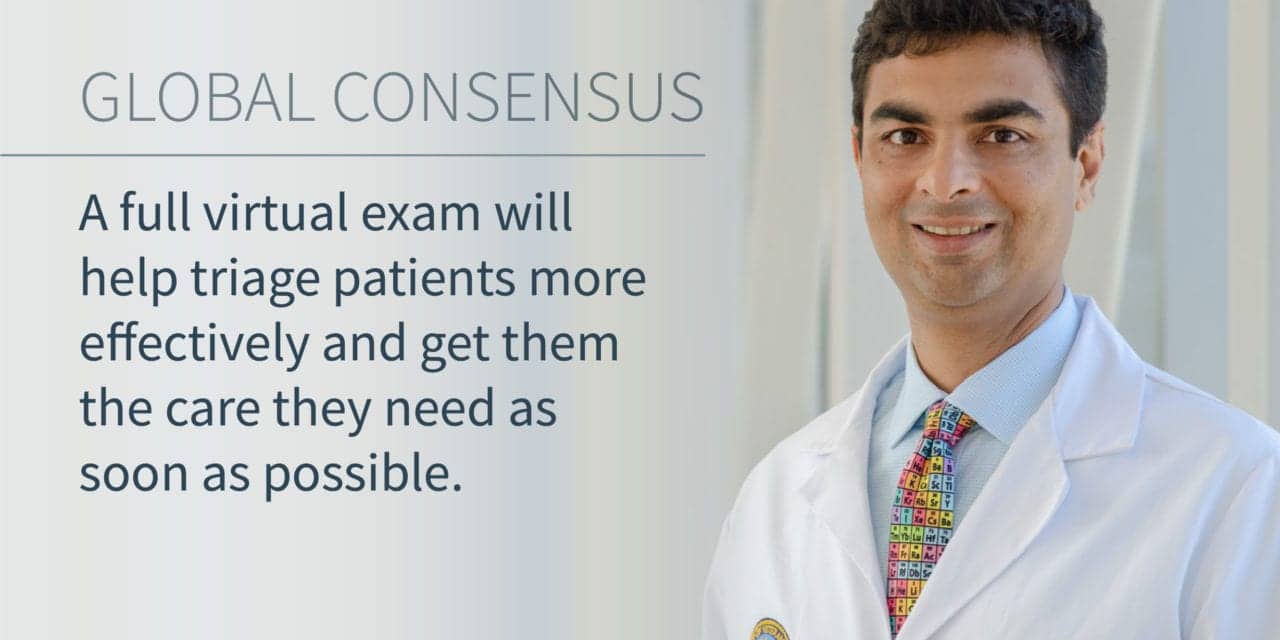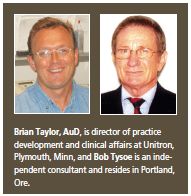One out of five people experience dizziness at least once every year. It is so bad in some people that there are about 4 million visits for treatment of dizziness in US emergency rooms each year. Dizziness is a symptom that can be linked to a wide-range of conditions, from something relatively benign such as dehydration, a chronic problem such as anxiety, or with conditions as serious as a stroke or multiple sclerosis.
“About 15% of those visiting the emergency room have devastating neurological conditions such as stroke or multiple sclerosis that require urgent attention,” said Aasef Shaikh, MD, PhD, the Penni and Stephen Weinberg Chair in Brain Health at the University Hospitals Neurological Institute and a research scientist from the Cleveland Functional Electrical Stimulation (FES) Center at the Louis Stokes Cleveland VA Medical Center.
Dr Shaikh recently led an international taskforce of experts to develop globally accepted, consensus-based guidelines to help emergency room doctors diagnose and triage patients with dizzy symptoms over a telehealth, virtual platform, according to an announcement on the University Hospitals website. This taskforce, consisting of two dozen expert physician-scientists from 10 countries, had its work endorsed and published by the International Society for Research in Cerebellum and Ataxias.
“There are very few doctors who have adequate experience to treat the complex problem of dizziness. As our world is going through the crisis in a contagious pandemic, the doctors were strained in triaging their patients with dizziness based on new priorities,” said Dr Shaikh. “They had to determine which patients should be attended expeditiously and who could wait.”
The taskforce offered two important tips: (1) How to identify a patient who needs urgent evaluation, expedited evaluation, or one who could wait to be seen in clinic at a later date; and (2) How to evaluate a patient with dizziness using the virtual platform of telemedicine.
The guidelines were prepared in such a way that they become helpful for any healthcare provider working in the urgent care, emergency room, or general practice, said Dr Shaikh. Furthermore, the taskforce believes that telemedicine for patients with dizziness will resolve many logistic issues even after the COVID-19 crisis is over.
“There was an era before COVID-19, and there will be a different time after,” said Dr Shaikh.
The taskforce also shared a word of caution. They believe, no matter how advanced healthcare systems become in using virtual ways to treat patients, the human interaction of the in-person consultation will continue to be an important component in the healing process.
“The future guidelines for telemedicine should be informed by evidence that weighs up the pros and cons personal versus telemedicine consultations. Whatever the coming years will bring, it seems clear that telemedicine has received an immediate boost to its uptake with major implications. This could mean a major paradigm shift in favor of for time- and resource-management in healthcare,” said Dr Shaikh.
Original Paper: Shaikh AG, Bronstein A, Carmona S, et al. Consensus on virtual management of vestibular disorders: urgent versus expedited care. The Cerebellum. 2020. DOI: https://doi.org/10.1007/s12311-020-01178-8.
Source: University Hospitals, The Cerebellum
Image: University Hospitals





